How a patient treated 280 miles from home died on the M11 hard shoulder
Peggy Copeman, 81, was neglected by a private ambulance service, a coroner concludes. …
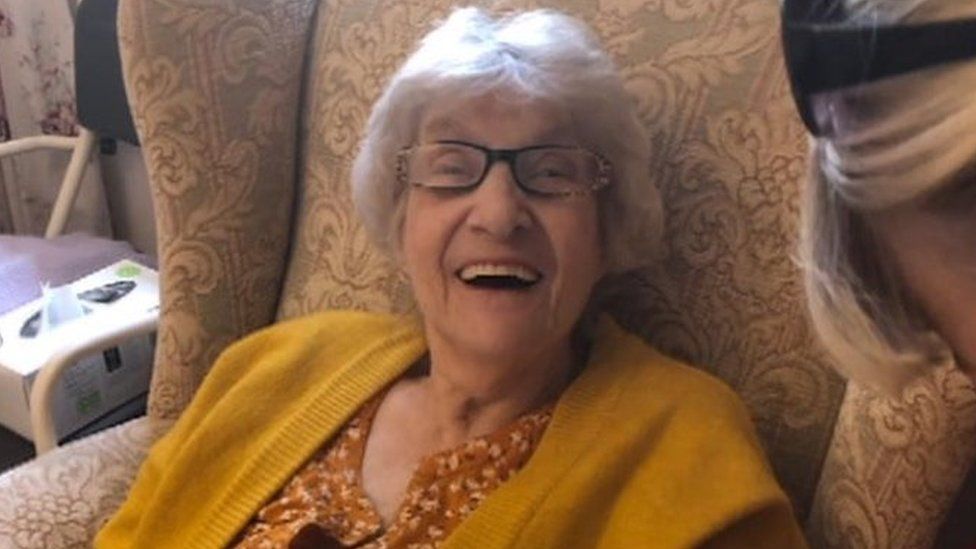
By Nikki Fox
BBC Look East Health Correspondent
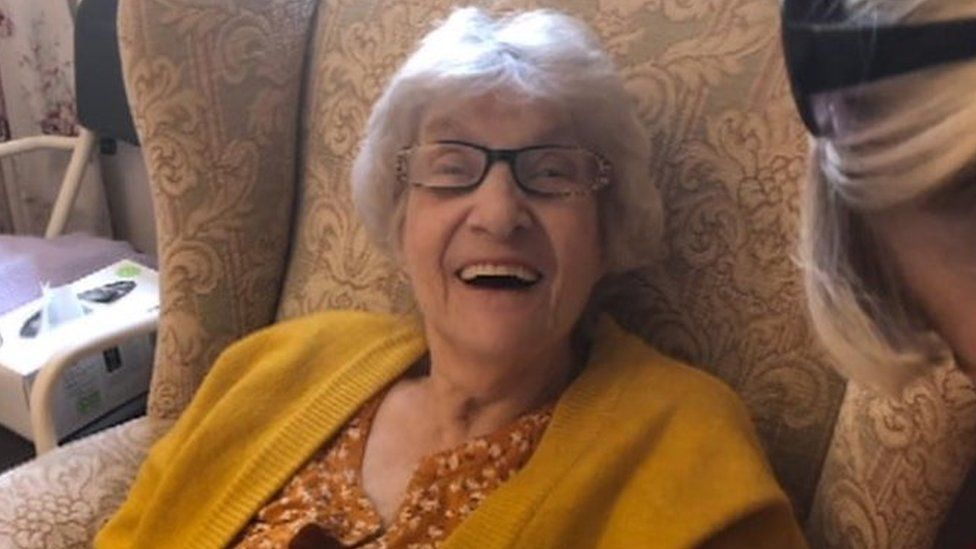 image copyrightMaxine Fulcher
image copyrightMaxine FulcherShe had never left her home county before but a lack of mental health beds meant Peggy Copeman, 81, was taken to a hospital hundreds of miles away. As she was being driven back to Norfolk from Somerset, she was taken ill and died on the hard shoulder of the M11 motorway. A coroner concluded she was neglected by a private ambulance company.
Peggy Copeman was sitting upright in the back of a Ford Transit when she suffered a fatal cardiac arrest.
This was despite a mental health professional from Norfolk County Council previously saying she should be on a stretcher.
Beside her were two medical transfer staff, one of whom admitted he did not have sufficient training to deal with the situation.
About 500 miles (804km) into a 560-mile (901km) round trip, Mrs Copeman was returning to Norfolk from a mental health unit in Somerset.
Her family say she was too ill for a six-and-a-half hour journey. How had it come to this?
‘She was the love of his life’
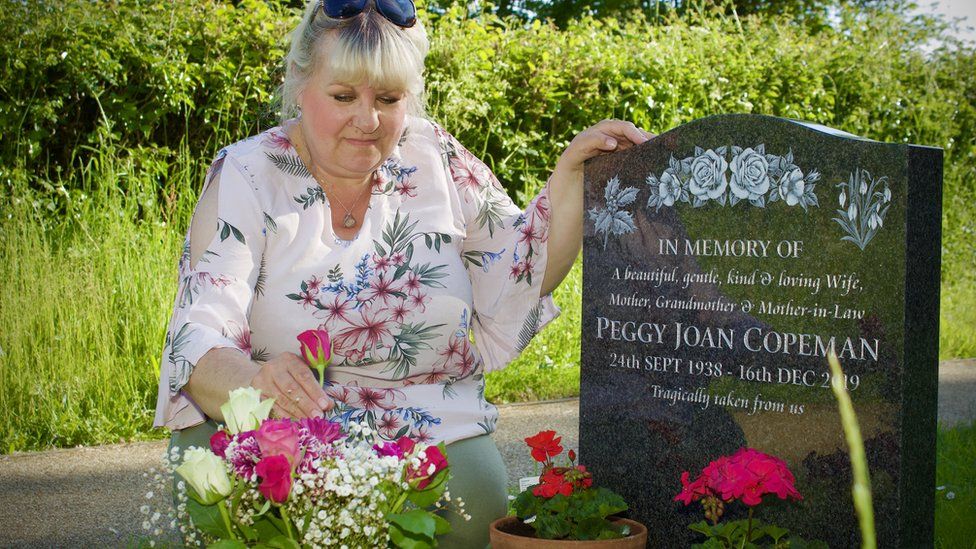 image copyrightMartin Giles/BBC
image copyrightMartin Giles/BBCEvery Sunday, Mrs Copeman’s daughter Maxine Fulcher goes to see her father Neville, and they always pay a visit to the churchyard at Banham, Norfolk, where she is laid to rest.
Breaking the news of her mother’s death to her father was the “most horrendous thing”, she says.
She and her husband Nick could not face it immediately, and waited until the next day.
Mr and Mrs Copeman had just celebrated their 60th wedding anniversary.
“What do you do or say? She was the love of his life. Imagine how he felt losing mum, not having the chance to say goodbye,” she says.
The couple went to the same secondary school but fell in love when they were next-door neighbours.
They moved into a cottage and Mr Copeman worked as a gardener.
‘She was a lovely person, inside and out’
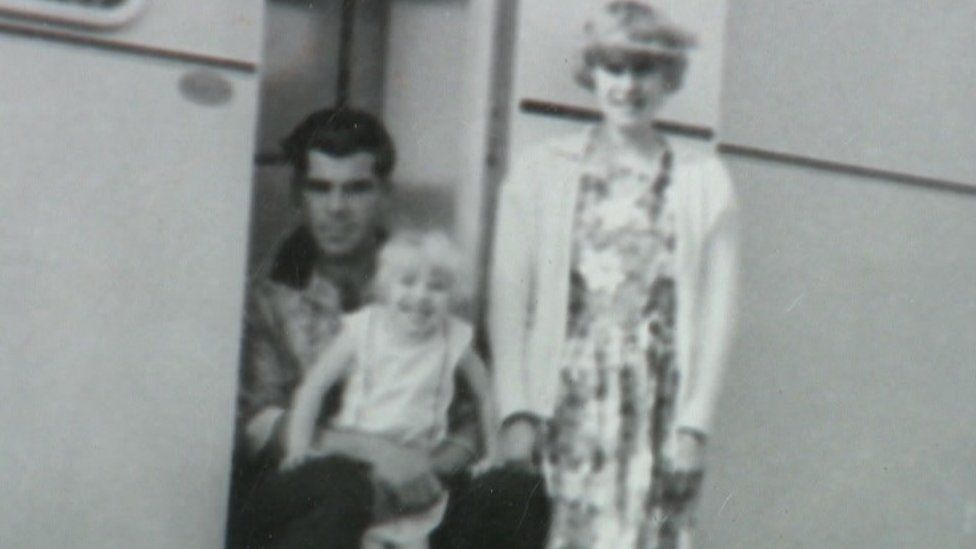 image copyrightMaxine Fulcher
image copyrightMaxine FulcherBorn in 1938, Mrs Copeman was a talented athlete, who, by the time she was 16, had represented Norfolk in the 100m sprint.
She worked in Woolworths and a bakery and was always, says her daughter, well-presented, saving up to buy the latest clothes.
“She had a beautiful head of hair,” says Mrs Fulcher. “Neville was very proud of her. He’d do anything for her.”
She liked going to the pictures, and looked up to glamorous stars like Elizabeth Taylor and Doris Day.
“She was very kind,” says Mrs Fulcher. “She would go out of her way to please anyone else. She was a lovely person, inside and out.”
She was also very private. Mrs Fulcher, her only daughter, was born at home, and she made her husband wait in the garden until she had given birth.
‘A nurse would come around every other week’
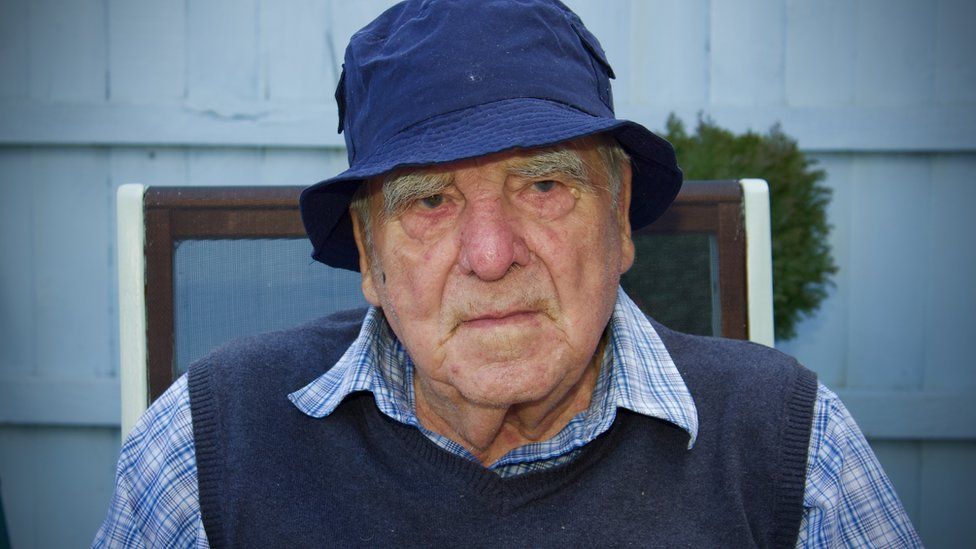 image copyrightMartin Giles/BBC
image copyrightMartin Giles/BBCMrs Copeman had her first nervous breakdown and was diagnosed with schizophrenia when Mrs Fulcher was just three years old. In the 1960s, she was given electroconvulsive therapy.
Ten years passed, her daughter says, before things deteriorated.
In 1986, she was admitted to the Julian Hospital in Norwich.
Once her medication worked, it was years between relapses, although she went on to have three more breakdowns.
In 2014, Mrs Copeman had to move into St Mary’s Care Home in New Buckenham after a fall.
Her husband continued to say goodnight to her each night, as he could see her care home from the window of their home.
Mrs Fulcher would take her home every other Friday to see Mr Copeman.
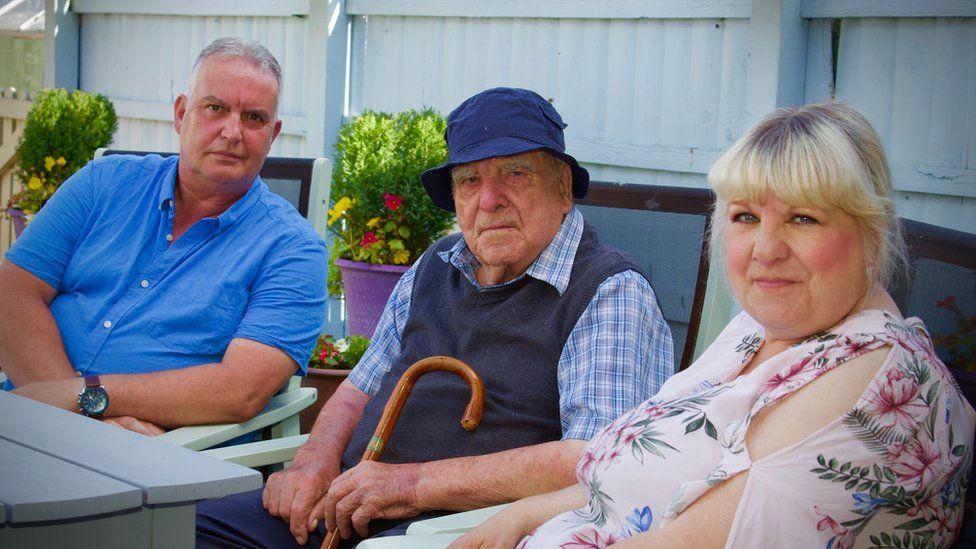 image copyrightMartin Giles/BBC
image copyrightMartin Giles/BBC“He was devoted to her and she was devoted to him. I think in my entire life they only had one or two cross words,” says Mrs Fulcher.
After a medication change in 2017, her mental health deteriorated and the care home struggled when she became aggressive.
The Norfolk and Suffolk NHS Foundation Trust tried to find her a bed at a specialist hospital.
The nearest suitable place was at the Cygnet Hospital in Taunton, Somerset.
The transfer happened earlier than planned and her family did not have a chance to say goodbye.
“If I knew what would happen, I would have kept her at home,” says Mr Copeman.
‘Our concerns were dismissed’
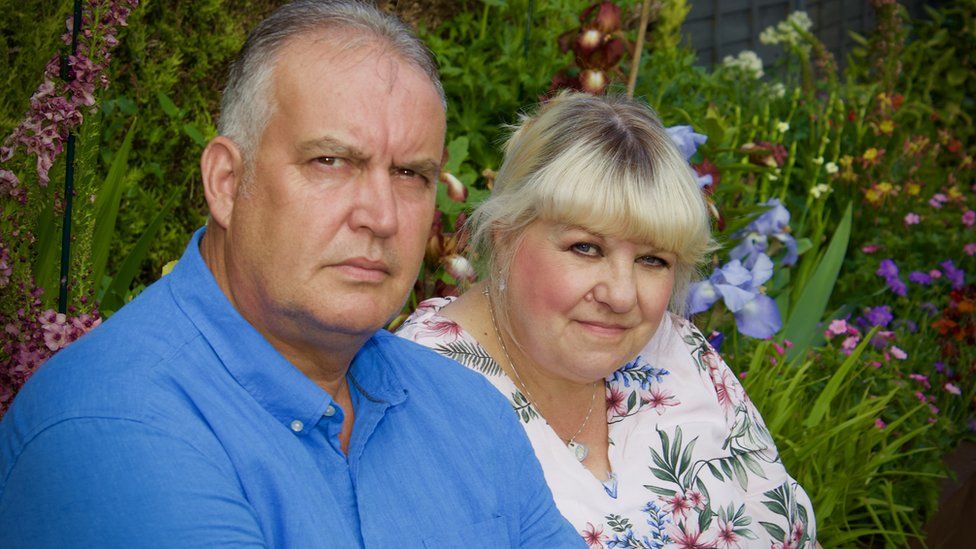 image copyrightMartin Giles/BBC
image copyrightMartin Giles/BBCThe private hospital in Somerset was the only one in the country that would take an older person with schizophrenia.
Mrs Copeman arrived there on 12 December 2019.
Two days later, a test confirmed a possible urinary tract infection (UTI) and she began a course of antibiotics.
That same day the family were told a bed had been found back in Norfolk.
Her daughter and son-in-law told Cygnet they wanted Mrs Copeman to recover before she made the long journey back.
“We repeatedly raised concerns that she was too ill to travel, but our concerns were dismissed,” says Mrs Fulcher.
Cygnet says a full physical health examination was not completed before her journey because Mrs Copeman was unwilling.
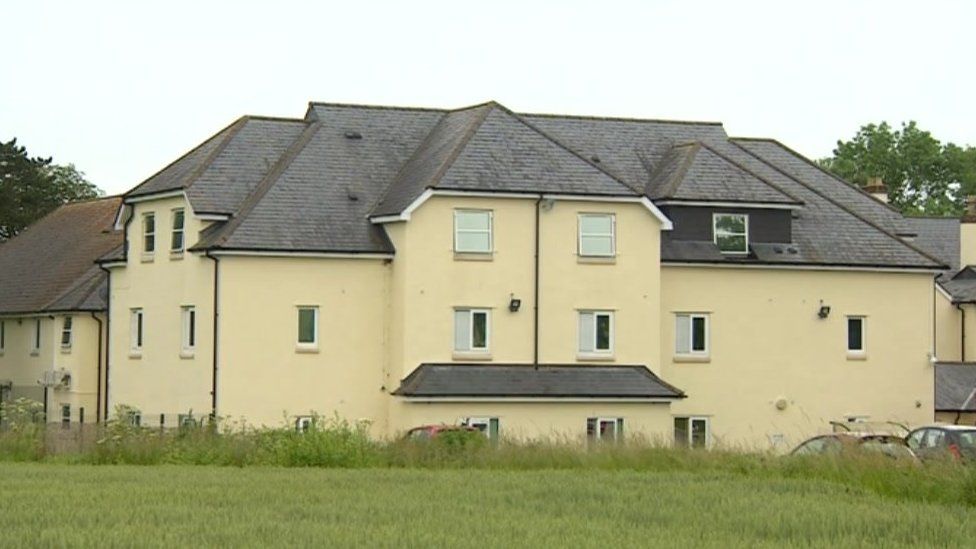
No registered nurse turned up for a shift the day before she died and Cygnet staff told the transfer staff Mrs Copeman was “acting up”, the inquest heard.
Cygnet Hospital says it has now changed the way it manages “out-of-area transfers”, with formal health assessments taking place before a patient is admitted and before transfers, with consent obtained from relatives.
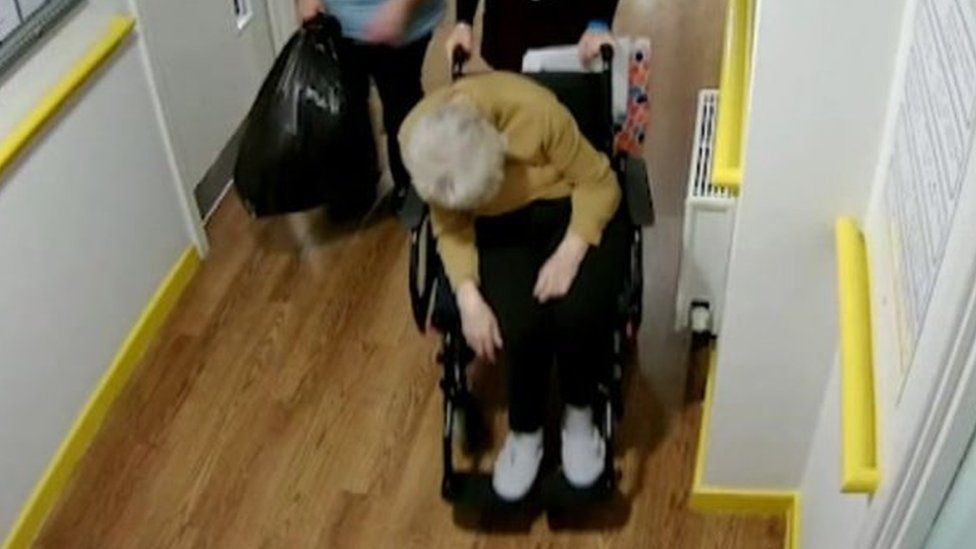 image copyrightHM Coroner
image copyrightHM CoronerThe fact none of these things were done before Mrs Copeman’s journeys astounds her daughter.
“Why wasn’t she assessed both ways?” she says.
The inquest was played CCTV footage of Mrs Copeman being wheeled out of the hospital, with her chin on her chest. An hour earlier, a doctor said, she had been “bright and alert”.
‘She would have been petrified’
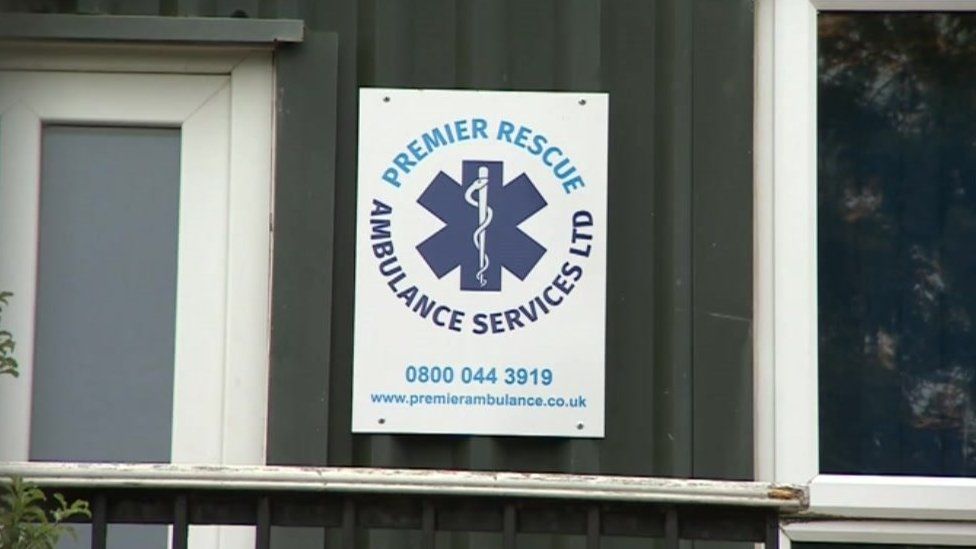
On the afternoon of 16 December, Taunton-based Premier Rescue Ambulance Services collected Mrs Copeman.
The two staff on board had only been doing the job for a few months.
When Mrs Copeman started to show signs of distress, they called their own company and Cygnet, asking for advice.
She stopped breathing and staff attempted CPR while she was in the wrong position.
There was no defibrillator in the van and no stretcher. Staff did not use the first aid kit.
No-one seemed to know how to perform CPR correctly, rescue breaths were not administered and when she made distressed noises, staff thought she was snoring.
“I know she would have been petrified in that ambulance,” says Mrs Fulcher.
“I cried that someone didn’t know how to do CPR right.
“The ambulance services – they have to be experienced; they have to know what they’re doing.”
The first her family knew anything was wrong was when they received a phone call to say the ambulance had pulled over on the Essex/Cambridgeshire border – but not why.
Faced with “a wall of silence”, the family called every local hospital for news.
Mrs Copeman died at 15:00 GMT. The family were told at 19:20.
Earlier this month, the Care Quality Commission suspended Premier Ambulance Rescue Services following an inspection prompted, in part, by Mrs Copeman’s death.
It concluded “people using the service may be exposed to the risk of harm”.
On Friday, Coroner Jacqueline Lake said neglect to provide prompt medical attention by the ambulance service contributed to her death.
The ambulance service has been contacted for a comment.
‘National ambition’
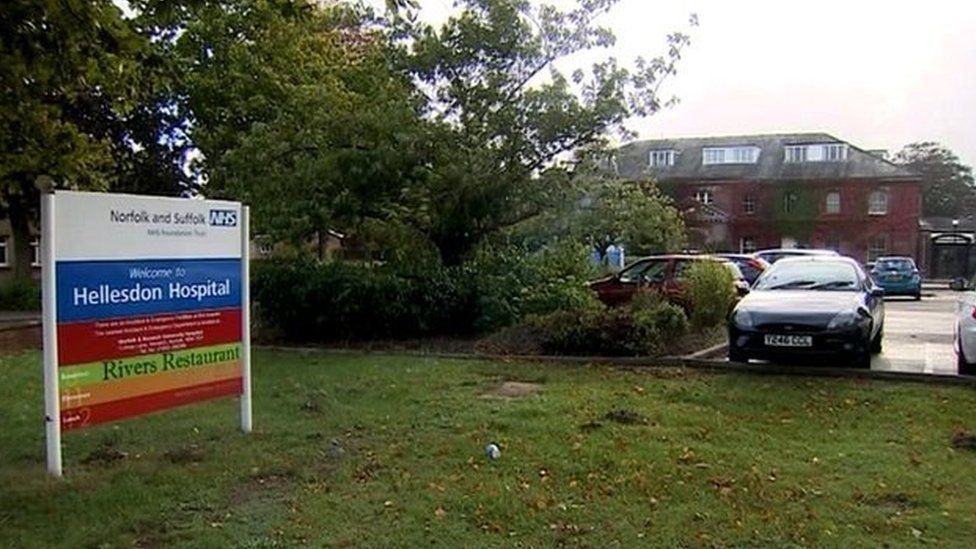
In special measures since 2017, the Norfolk and Suffolk NHS Foundation Trust spent £7m on “out-of-area” mental health bed placements in 2019-20.
It says it is opening 21 new older peoples’ beds for mental health patients.
The government set what it called a “national ambition” to end the practice of sending elderly mental health patients hundreds of miles away by April.
But according to NHS figures, the month before 670 people were sent away inappropriately.
‘It’s someone’s mum, someone’s dad’
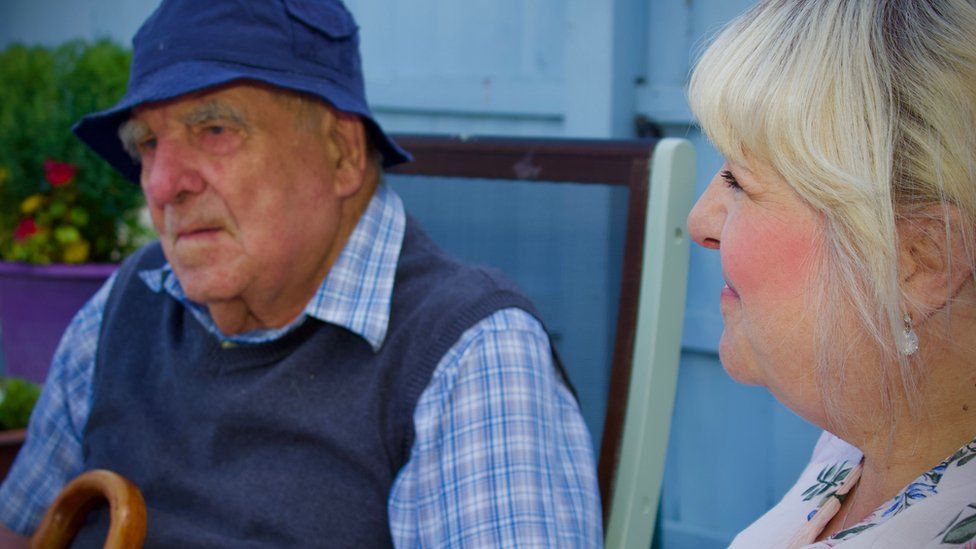 image copyrightMartin Giles/BBC
image copyrightMartin Giles/BBCMrs Copeman’s family think the problem can only be addressed alongside the drastic need for extra beds for older people within the trust.
“I firmly believe if she’d have been given the correct care, she would still be alive,” says Mrs Fulcher.
“The elderly are sometimes overlooked. But they shouldn’t be. It’s someone’s mum, someone’s dad and they deserve to be looked after.”

Related Topics
Related Internet Links
The BBC is not responsible for the content of external sites.

